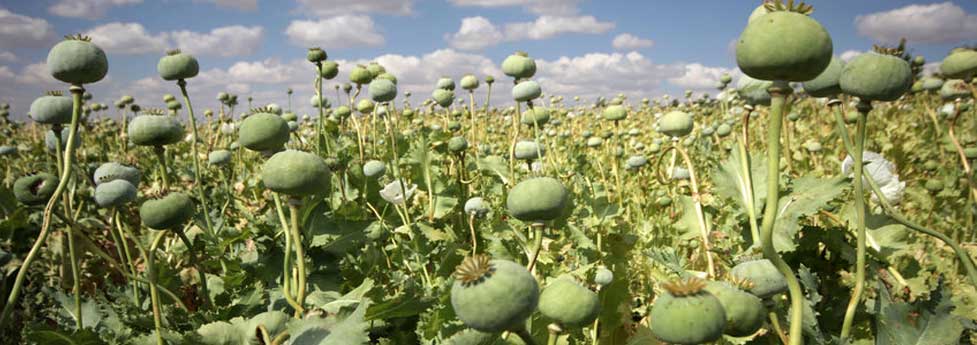It wasn’t too long ago when addiction wasn’t taken seriously, even within the scientific community. For years, the inability to control one’s habits were reduced to nothing more than a lack of willpower. Now, more research is being conducted that leave scientists and doctors alike singing a new tune. They’re finding a common thread between other kinds of addiction, like drugs and alcohol, with food addiction.
Gene-Jack Wang, MD, clinical head at the U.S. Department of Energy’s Brookhaven National Laboratory in New York, insists that addiction has more to do with a lack of adequate dopamine receptors in the brain than lack of willpower. “Dopamine is the chemical that makes you say ‘aah’,” he said. “It gets us to go over and grab something that will make us feel good.”
People who are potentially born with fewer dopamine brain receptors, which is part of the brain’s motivation and reward system, appear to be more driven to consume the things that trigger a dopamine release when the normal everyday interactions fail to do so. This can be in the form of illegal drugs.
THE DEAL WITH NARCOTIC DRUGS
Drugs are essentially naturally occurring substances in nature that are chemically altered to produce a substance in our systems that tend to have opiate or narcotic properties. It’s not just chemically produced drugs, but also food. Milk, wheat, and gluten, for example, have been found to work like the body’s own narcotic.
Even a person who has no previous addictive behavior can become addicted to opioids, triggered by their narcotic effects and the lack of dopamine receptors in their brain.
“If you have someone who is not responsive to natural reinforcers, that person may be more vulnerable to taking drugs,” said Nora Volkow, MD, director of the National Institute on Drug Abuse. “If you get stimulated only by food, guess what happens? You can easily fall into patterns of compulsive eating.”
That is exactly how it happens with other drugs. People with a lack of dopamine receptors in the brain seek out the one thing that makes them feel good and they keep going back to it. It’s how addicts in all shapes and sizes are made, whether it’s a heroin epidemic or obesity.
OVERCOMING ADDICTION
Since all forms of addiction are similar and impact the same areas of the brain (the same neurotransmitters), and even share the same symptoms, the treatments are also the same. Research has revealed that people who have a family history of alcoholism are more likely to be obese, as both conditions have a tendency towards addictive behavior.
If all of this sounds familiar to you, and you think you might have an addiction, there are ways to overcome it. Many people have tried to quit an opioid addiction, but the dependency is so strong that they go through withdraw symptoms, get sick, and find themselves back on their drug of choice.
To beat the addiction, you must rewire your brain. It will require help from family and friends, just like with any other addiction. Here are a few ways to do just that:
1) Admit to your closest family and friends you have a problem. They can help you shop better, do proper research on ways to overcome the withdrawal so you can stay on the right path. Friends and family can often be guilty of enabling bad behavior, but if you explain to them you have an addiction and need help to break it, they will be less inclined to tempt you.
2) Learn different ways to cope with your need for pleasure. As mentioned above, this is part of what turns people into addicts. We need to stimulate the feel-good centers of our brain. That’s when opioids become a part of our lives when they shouldn’t be. We then turn to drugs to perk us up when we’re sad, to celebrate when we’re happy, and it becomes an emotional crutch.
3) Going cold turkey. This is where you’ll need some support. Going cold turkey effectively means 3-7 days of hell. There will be shakes, cold spells, fevers, diarrhea, and vomiting. It’s essentially getting the flu without the harmful virus. Knowing this, be prepared ahead of time to treat all the symptoms of going cold turkey to make the time pass easier.
4) Learn a new routine. Sometimes addictions will actually cause you to develop a new pattern and routine of your day. If you can look back and see how your life has changed and what you used to do before, maybe change the bad habits that perpetuate the addiction and either develop new, healthy ones or go back to your way of life before the addiction.
5) Therapy. Nothing is going to get to the root cause of your issue(s) better than sitting down with an expert and talking about your life. Why are you in pain? Why do you need that extra release? A doctor and/or therapist will be able to help get you the treatment you need.
Once you determine if you have an addiction and can have a better understand of how drugs trigger those ‘feel good’ sensors, you can take the first step in achieving better health by ridding them from your life. For every craving you have, there’s an underlying need that needs to be addressed. They say it takes about 22 days to develop a new habit. Go hardcore for one month and change your life. After about one month, those addictions will be easier to overcome and your body will go through some amazing changes for the better.

